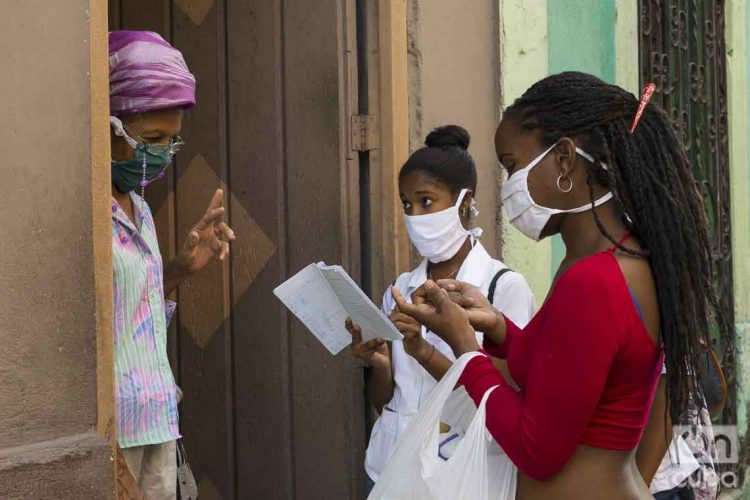The Pan American and World Health organizations (PAHO/WHO), through their representative in Cuba, recognized the island’s work in confronting the COVID-19 pandemic, Cuban media reported.
Dr. José Moya, who represents both international organizations in Havana, described the work carried out in Cuba to contain and prevent the spread of the SARS-CoV-2 coronavirus as “effective,” despite the outbreak experienced in the country in recent weeks, the Agencia Cubana de Noticias (ACN) news agency highlighted.
In the specialist’s opinion, the success of Cuba’s strategy against COVID-19 lies in the fact that “it has been based on the strengths of its national health system, such as the national primary healthcare network,” which, he said, “has made it possible to rapidly identify cases, as well as their follow-up and isolation by epidemiology teams.”
In statements to the official newspaper Granma, Dr. Moya highlighted the measures taken in the country to achieve “the greatest possible social distancing,” including the timely suspension of the school year―now resumed in most Cuban provinces―, the paralyzation of urban and interprovincial transportation and the temporary closure of commercial flights, which, he said, “considerably reduced population mobility.”
In addition, he praised as a “novel strategy” the work of the family doctor and nurse’s offices, “where epidemiological and laboratory work in response to the pandemic begins,” as well as teamwork, with a single national plan against COVID-19, and the value given to science, technology and innovation, and its contribution to the response to the pandemic.
Similarly, Dr. Moya insisted on the importance of exchanging experiences and knowledge about a new disease, “in which everything has to be investigated, and as a result of new evidence, knowledge, response, and care of patients are being improved.”
The official stated that “both WHO and PAHO have established spaces for this exchange, always seeking solidarity” and said that “this is being achieved with contributions of drugs that help a better evolution of patients in serious or critical condition, or, as we see now, with vaccines that are already in advanced stages of research.”
Among the latter, he highlighted the work of Cuba with the Soberana 01 vaccine candidate, currently in the clinical trial phase.
“We firmly wish it passes all the controls and tests, so that it becomes an instrument of life at the service of humanity,” he said.
On the other hand, he noted that so far this year more than 300 virtual sessions have been held “to be better informed and prepared in the response to the pandemic,” and affirmed that PAHO supports its member countries, including Cuba, “in the management and purchase of personal protective equipment, supplies and various medical devices.”
Finally, he praised the medical aid provided by Cuba to other countries against COVID-19. Regarding this, the representative of WHO/PAHO said that “without a doubt it is a recognition of the capacity of Cuban health personnel and their willingness to mobilize and contribute in solidarity in the response to situations of natural disasters and emergencies countries are going through permanently.”
“We also see it as a meeting of knowledge, experiences, medical and nursing knowledge, in which both parties benefit,” he concluded.










